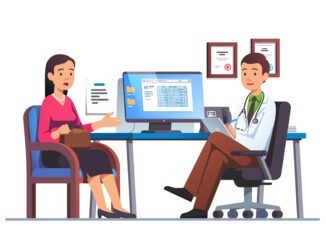
This short guide is designed to inform GPs, PCNs and LMCs about workforce initiatives and schemes that can be accessed in England
The following schemes were developed as part of the BMA GP committee’s work with NHS England and Health Education England, or introduced as a result of GP contract negotiations.
GP training
Targeted enhanced recruitment scheme (TERS)
- £20,000 is available to GP trainees who take up a training place in an area where it has recently proven difficult to recruit to.
- Each year the GP national recruitment office identifies the locations that will take part in TERS.
- A number of posts in each location will be identified to receive the TERS payment. It is important to be aware that posts are limited, and it may be that not all training posts in an identified TERS location will receive the TERS payment.
- For more information, including how to apply, visit the NHS England website.
Early career GPs – general practice fellowship programme
- A two-year programme of support is available to all newly qualified GPs working substantively in general practice, with a focus on those working in a primary care network (PCN).
- Fellowships are also available for nurses and these are covered below. The financial reimbursement available differs between GPs and nurses.
- GPs on the programme receive:
- support with PCN portfolio working;
- learning and development support;
- support towards taking up substantive roles;
- help to understand the context they are working in within the PCN.
- Practices are reimbursed for one session per week (pro rata) to allow participants to spend time on the programme, up to a total of £10,200 per GP.
- For more information about the scheme, and how to apply, visit the NHS England website.
Wider schemes for GPs
- GP international induction and return to practice programmes
Formerly combined under the ‘Induction and Refresher Scheme’, these offer a route into general practice for doctors who qualified overseas with no previous NHS general practice experience, and a route back to general practice for doctors who have previously been on the GMC register and NHS England’s medical performers list.
- The schemes are individually tailored for each doctor in terms of the support they are given and their assessments.
- A range financial support is available, including a monthly placement bursary of up to £3,500.
- Find out more about eligibility for the schemes, and the support available, through the Health Education England website.
- Childcare and other carer costs for returners and new NHS GPs
- Qualified GPs who are interested in coming back to the NHS, or joining from overseas, can access financial support worth up to £2,000 if family responsibilities would be a barrier to completing the necessary training.
- Applicants with children aged under 11 will be able to claim a total of £2,000 towards the cost of childcare for each child whilst on the induction and refresher scheme.
- Other caring responsibilities are also covered, with costs claimable up to a total of £2,000 for the care of a dependent in the doctor’s absence whilst on the scheme.
- Read more about this on the NHS England website and on the Health Education England website.
Later career GPs – supporting mentors scheme
This scheme is designed to support GPs by creating an opportunity to develop mentoring skills and a portfolio working opportunity to help retain GPs in the workforce.
- Participants provide mentorship to GPs taking part in the general practice fellowship programme.
- Participants must deliver at least three clinical sessions per week and be willing to take on an additional mentoring session per week.
- Mentors will receive:
- training which results in an industry recognised qualification;
- £289 mentoring supplement per weekly session.
- For more information visit the NHS England website.
PCNs
- Additional roles reimbursement scheme
The scheme is designed to increase workforce capacity by bringing new staff into primary care through PCNs. PCNs receive population-weighted funding to allow them to recruit staff from a list of twelve different roles:
- clinical pharmacists;
- pharmacy technicians;
- nursing associates;
- trainee nursing associates;
- social prescribing link workers;
- health and wellbeing coaches;
- care co-ordinators;
- physician associates;
- first contact physiotherapists;
- dieticians;
- podiatrists;
- occupational therapists.
Staff hired by the PCN under the scheme will work at one or more of the practices within the network.
- 100% of the salary and some defined on-costs will be paid through the scheme.
- For more information about the scheme and the network contract DES, visit the NHS England website.
- Clinical director roles
Integrated care systems and sustainability and transformation partnerships have funding available for PCN development, some of which can be used for clinical director development. PCN clinical directors can play a role in deciding how this funding is spent at a local level alongside the CCG and the local system.


Be the first to comment